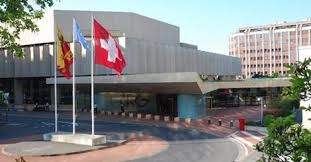Most people would not think of Geneva, Switzerland as an uncomfortably hot city. But each and every time I’ve been here, it has been. The city was so hot this most recent trip that I actually saw two trees fighting over a dog.
Still, the reason for braving the heat here was a good and necessary one: The 38th session of the Codex Alimentarius Commission was being held this week of July 6-11, 2015 and one of the most important items to be debated on its agenda was the adoption of a Maximum Residue Limit (MRL) for recombinant bovine growth hormone (rBGH) or recombinant bovine somatotropin (rbST).
It might sound inconsequential, but it isn’t. As I have mentioned before, obtaining an MRL at Codex for rBGH is the marketing equivalent of a drug company being handed the “Keys to the City.” It is a license to sell the vet drug throughout the Codex member-state world, with World Trade Organization (WTO) sanction power behind it. Many Codex members and member states—such as the European Union, Norway, Switzerland, India, Russia, and China—have banned this genetically modified veterinary drug’s use on animals under a very sensible health policy that prohibits drug use on animals for anything other than therapeutic purposes. The vet drug rBGH, injected into cows, is not therapeutic; it is used to increase milk production. Yet, if an MRL is approved at Codex, then the Europeans and many others would be faced with a dilemma: Acquiesce to its introduction into their food supply or else pay heavy trade sanctions imposed upon them by the WTO.

